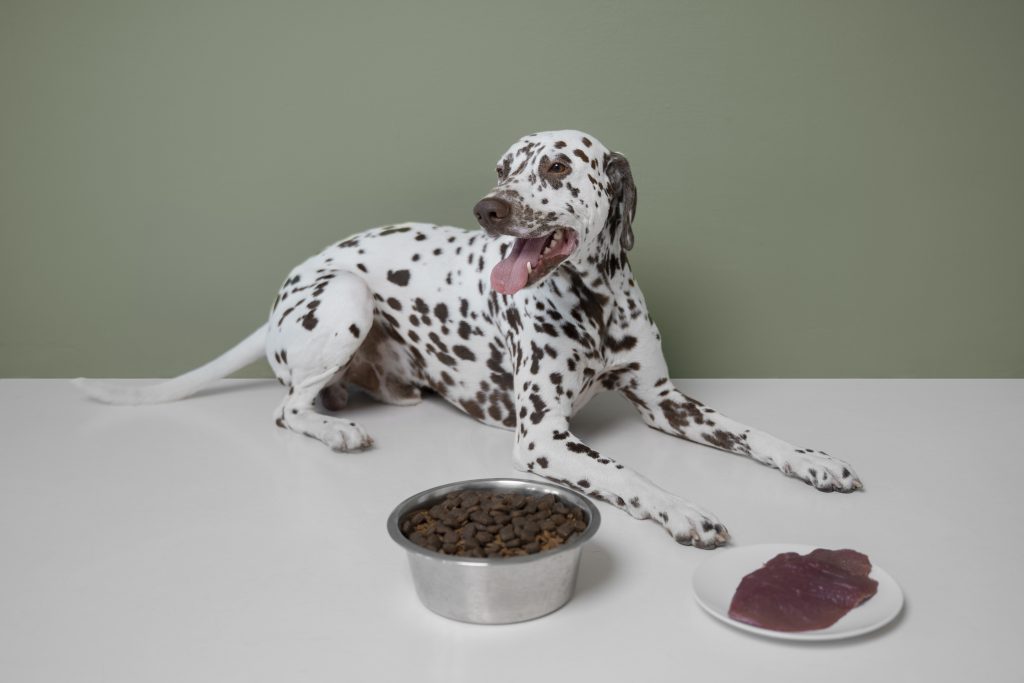The Role of Hypoallergenic Diets in the Health of Pets

Understanding Hypoallergenic Diets
Many pet owners are unaware that their furry friends may suffer from food sensitivities. Hypoallergenic diets can play a pivotal role in alleviating these issues, promoting overall health. By exploring the intricacies of these specialized diets, pet owners can make informed decisions that significantly impact their pets’ well-being.
What are Hypoallergenic Diets?
Hypoallergenic diets are specially formulated to minimize the risk of allergic reactions in pets. They are particularly beneficial for those animals that exhibit symptoms such as chronic itching, gastrointestinal distress, or skin irritations, which may all be signals of underlying food sensitivities. These diets typically contain:
- Novel protein sources: Ingredients like venison, duck, or rabbit, which are less likely to trigger allergies as they are not common in typical pet food.
- Limited ingredients: A short list of components that aim to minimize allergen exposure and provide a simplified diet that is easier for the pet’s digestive system to handle.
- Hydrolyzed proteins: Proteins that have been broken down into smaller units, making them less likely to provoke an immune response. These are designed for pets with severe allergies as they decrease the chances of allergen entry into the bloodstream.
By addressing these potential allergens, hypoallergenic diets help manage symptoms associated with food sensitivities, allowing pets to lead a more comfortable life. This revelation urges pet owners to consider dietary options especially tailored for sensitive animals, as the right food can make a remarkable difference in their quality of life.
Why Choose a Hypoallergenic Diet?
With increasing numbers of pets experiencing food allergies, understanding the importance of hypoallergenic diets is crucial. The prevalence of such allergies in pets can range from 5% to 15%, a significant statistic that highlights the need for specialized nutritional approaches. Consider these compelling reasons for opting for a hypoallergenic diet:
- Improved skin health: When allergens are removed from a pet’s diet, you may see a noticeable reduction in irritation and inflammation, leading to healthier skin and a shinier coat.
- Better digestion: A hypoallergenic diet can alleviate discomfort caused by food intolerances, promoting improved digestion and nutrient absorption. This can lead to more consistent and healthy bowel movements.
- Enhanced quality of life: Pets that can enjoy their meals without the fear of adverse reactions tend to display improved moods and behaviors, ultimately resulting in a happier and healthier companion.
As awareness of food sensitivities grows among pet owners, so does the demand for hypoallergenic options. This trend is influencing pet food manufacturers to explore innovative formulations that cater to these dietary needs, resulting in a broader variety of choices for concerned pet guardians. Offering your furry friend the best possible nutrition could be the key to a transformative health journey, making it well worth the investment in their well-being.

LEARN MORE: Click here for insights on integrating rescued animals into families
The Impact of Food Allergies in Pets
The increasing awareness surrounding food allergies in pets is reshaping how we approach their nutritional needs. Many pet owners are surprised to learn that dogs and cats can also suffer from food allergies, which can manifest in a variety of uncomfortable symptoms. Not only do these reactions affect a pet’s physical health, but they can also influence their emotional well-being. The most common signs of food allergies include:
- Itchy skin: Pets may develop excessive itching, redness, or hot spots, often resulting in frequent scratching and discomfort.
- Digestive issues: Symptoms such as vomiting, diarrhea, and gas may indicate that a pet’s diet is not well-suited to their digestive system.
- Ear infections: Frequent ear infections can be a sign of underlying food allergies, as the inflammation induced by allergens often extends to the ears.
In fact, research indicates that nearly 10% of all pets suffer from food allergies or intolerances, underscoring the importance of recognizing the signs and seeking appropriate dietary solutions. For many pet owners, the challenge lies in identifying the specific allergens responsible for these reactions. Common allergens found in pet food include:
- Beef
- Dairy
- Chicken
- Wheat
- Fish
When traditional diets fail to meet the needs of sensitive pets, hypoallergenic diets emerge as a promising alternative. By offering a carefully curated selection of ingredients, these diets significantly reduce the risk of allergic reactions. Pet owners looking to improve their furry companions’ quality of life can find solace in hypoallergenic options backed by scientific research.
The Science Behind Hypoallergenic Diets
Understanding the science behind hypoallergenic diets can shed light on their effectiveness. These diets are not just a marketing gimmick; they are based on the principles of immunology and nutrition. A hypoallergenic diet’s primary goal is to minimize exposure to allergens while ensuring that pets receive balanced nutrition. Here are a few key components that enhance their success:
- Ingredient Selection: Major allergens are deliberately avoided, with novel protein sources and carbohydrates chosen to help eliminate the risk of triggering sensitivities.
- Formulation: Many hypoallergenic diets undergo rigorous testing to ensure they meet strict guidelines. This includes hydrolyzed protein sources that prevent the immune system from recognizing them as potential threats.
- Veterinary Involvement: Collaborating with veterinarians ensures that pets are getting the right type of hypoallergenic diet tailored to their unique needs, resulting in better outcomes.
With this scientific foundation, hypoallergenic diets provide more than just a meal; they offer a lifeline for pets struggling with food sensitivities. As pet owners continue to advocate for their companions’ health, hypoallergenic diets stand out as a carefully-designed solution that caters to the well-being of animals across the United States.
| Category | Description |
|---|---|
| Food Sensitivities | Many pets suffer from food allergies, leading to various health issues ranging from skin problems to gastrointestinal distress. |
| Nutritional Benefits | Hypoallergenic diets often include high-quality proteins and limited ingredients, promoting better overall health and vitality. |
| Weight Management | These diets can aid in maintaining a healthy weight, which is crucial for preventing additional health problems. |
| Skin Health | Many hypoallergenic foods are formulated to enhance skin condition and reduce allergies, promoting a healthier coat. |
| Digestive Health | Easily digestible ingredients can lead to fewer stomach issues, ensuring the pet absorbs nutrients effectively. |
Hypoallergenic diets serve as a solution for pets suffering from allergic reactions caused by common ingredients like beef, dairy, and grains. Such diets typically substitute with alternative protein sources such as duck or fish, along with novel carbohydrates such as sweet potatoes. This approach significantly reduces the risk of allergic responses while providing well-balanced nutrition tailored to the pet’s needs. Promoting gut health further emerges as a cornerstone of these dietary regimens, with the incorporation of probiotics and prebiotics to foster a thriving digestive ecosystem. As a result, pet owners report improved digestion, reduced incidences of diarrhea, and overall enhanced health vitality.Additionally, ongoing research emphasizes the importance of consistent feeding routines and tailored nutritional advice from veterinary professionals. Such practices ensure that pets not only receive the essential nutrients they require, but also contribute to their long-term health and wellbeing. By considering hypoallergenic diets, pet owners can explore innovative approaches to tackle their furry friends’ health dilemmas, paving the way for a happier, healthier life.
LEARN MORE: Click here to discover how you can make a difference
Benefits of Hypoallergenic Diets for Pets
The adoption of hypoallergenic diets in pet nutrition is not just about avoiding allergens; it represents a holistic approach toward enhancing a pet’s overall health. By carefully crafting diets that minimize the chances of allergic reactions, pet owners can observe significant improvements in various aspects of their animal’s well-being. Here are some compelling benefits that underscore the importance of these specialized diets:
- Improved Skin Health: Pets suffering from food allergies often experience persistent skin issues. By eliminating common allergens and incorporating anti-inflammatory ingredients, hypoallergenic diets can lead to clearer, healthier skin, resulting in reduced itching and irritation.
- Enhanced Digestive Function: A tailored diet can address gastrointestinal disturbances. Hypoallergenic options typically feature easily digestible ingredients, which help alleviate symptoms like diarrhea and vomiting. This not only aids in nutrient absorption but also supports a more robust microbial balance in the gut.
- Increased Energy Levels: As pets experience fewer allergic reactions and improve their digestive health, many owners report a notable boost in their energy levels. Pets can become more eager and engaged, leading to elevated physical activity and improved quality of life.
Furthermore, hypoallergenic diets have been shown to reduce the frequency of ear infections, another common consequence of food intolerance. By addressing the root cause of allergies, a properly formulated hypoallergenic diet can lead to fewer trips to the veterinarian and lower overall healthcare costs for pet owners.
Long-Term Health Implications
Choosing a hypoallergenic diet for pets can have long-term health benefits that extend beyond immediate relief from allergies. A well-balanced hypoallergenic diet equips pets with vital nutrients necessary for optimal health and development. For instance, specific diets enriched with omega fatty acids and antioxidants can support cardiovascular health and strengthen the immune system. Customized nutrition can even play a pivotal role in managing chronic conditions such as obesity and diabetes, which are increasingly prevalent in pets across the United States.
Moreover, the relationship between diet and behavior is gaining traction among veterinarians and animal behaviorists. Proper nutrition contributes not only to physical health but also to emotional stability. Pets fed a hypoallergenic diet may exhibit fewer behavioral issues related to discomfort or irritability from chronic allergic reactions.
As the landscape of pet care evolves, more pet owners are exploring the potential of hypoallergenic diets. The growing market now offers an array of options, from prescription diets available through veterinarians to commercially available brands specifically tailored for sensitive pets. By consulting with animal health professionals, pet owners can navigate these choices more effectively and select the best diet for their unique circumstances.
In conclusion, the journey toward better health for our pets through hypoallergenic diets is an ongoing exploration. As studies continue to underscore the profound impact of nutrition on every aspect of an animal’s health, the popularity and accessibility of these specialized diets are expected to rise, marking a significant advancement in pet care.
LEARN MORE: Click here to find essential tips for welcoming a rescued pet
Conclusion
In summary, the importance of hypoallergenic diets in promoting the health of pets cannot be overstated. By focusing on individualized nutrition that minimizes allergens, pet owners can facilitate significant improvements in their furry companions’ physical and emotional well-being. Enhanced skin health, improved digestive function, and increased energy levels are just a few of the numerous benefits associated with these specialized diets. Moreover, taking a long-term perspective, hypoallergenic diets can contribute to preventing systemic health issues and may even offer a pathway for managing chronic conditions like obesity and diabetes, which are prevalent in today’s pets.
As research continues to evolve, the potential implications of nutrition on pet health are becoming increasingly recognized. By collaborating with veterinarians and utilizing the expanding array of hypoallergenic options—ranging from prescription diets to high-quality commercial brands—pet owners can make informed decisions tailored to their animals’ unique needs.
Ultimately, the pursuit of optimal pet health through hypoallergenic diets highlights a significant shift in how we understand and manage our pets’ dietary requirements. This holistic approach not only fosters healthier pets but also strengthens the bond between pet owners and their beloved companions, paving the way for happier, healthier lives together. For further insights and tailored dietary recommendations, pet owners are encouraged to engage with animal health professionals, ensuring a proactive and informed approach to their pets’ nutrition.



